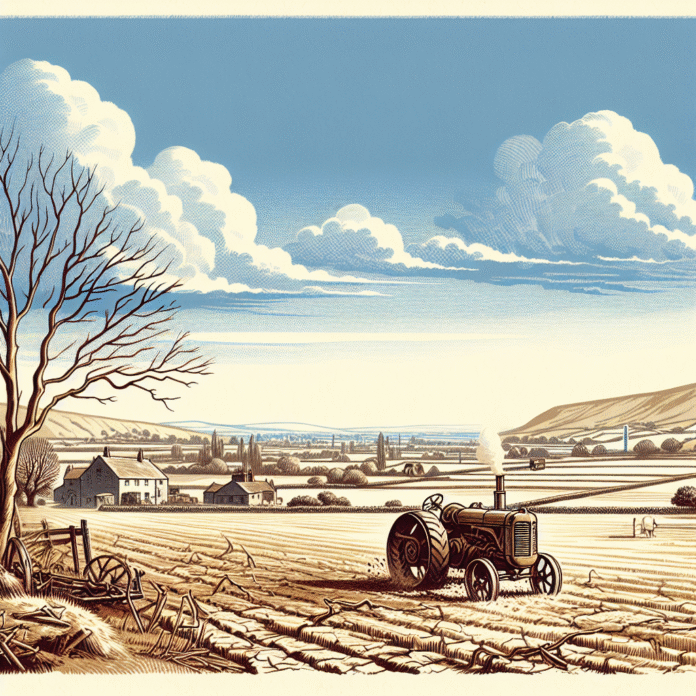Farmers Face Uncertainty Due to Extremely Dry Spring in the UK
Farmers Face Uncertain Harvest Due to UK’s Driest Spring in Nearly 70 Years
The agricultural community in the UK is confronting a significant challenge this year as the country experiences its driest spring in almost seven decades. This unprecedented lack of rainfall has left farmers anxious about their harvests, which are now hanging in the balance.
The prolonged dry spell, characterized by below-average precipitation levels, has raised concerns about crop yields across various regions. Farmers have reported that essential crops such as wheat, barley, and potatoes are struggling to thrive in the parched soil, leading to fears of reduced harvest volumes and quality.
Experts warn that the impact of this dry spring could extend beyond the fields. A decline in agricultural output may lead to higher food prices, affecting consumers nationwide. Additionally, livestock farmers are also feeling the pressure, as the scarcity of grass and forage crops could result in increased feed costs and potential health issues for animals.
Adaptations and Solutions
In response to the challenging conditions, many farmers are looking for innovative ways to adapt. Some are implementing water conservation techniques, such as drip irrigation systems, to maximize efficiency. Others are diversifying their crop selections, opting for drought-resistant varieties that require less water.
Government support may also play a crucial role in helping farmers navigate this difficult period. Agricultural organizations are calling for financial assistance and investment in infrastructure to improve water management systems, which could mitigate the effects of future droughts.
Looking Ahead
As farmers assess the damage and plan for the upcoming growing seasons, the need for sustainable practices and resilience in the face of climate variability has never been more apparent. The UK’s agricultural sector must adapt to these changing conditions to ensure food security for the future.
With climate change leading to more frequent and severe weather events, the lessons learned from this spring will be vital in shaping the strategies used by farmers going forward. The hope is that through innovation, collaboration, and support, the agricultural community can overcome this challenge and emerge stronger.


